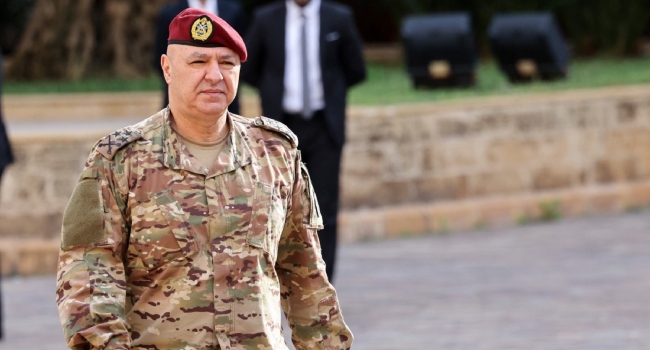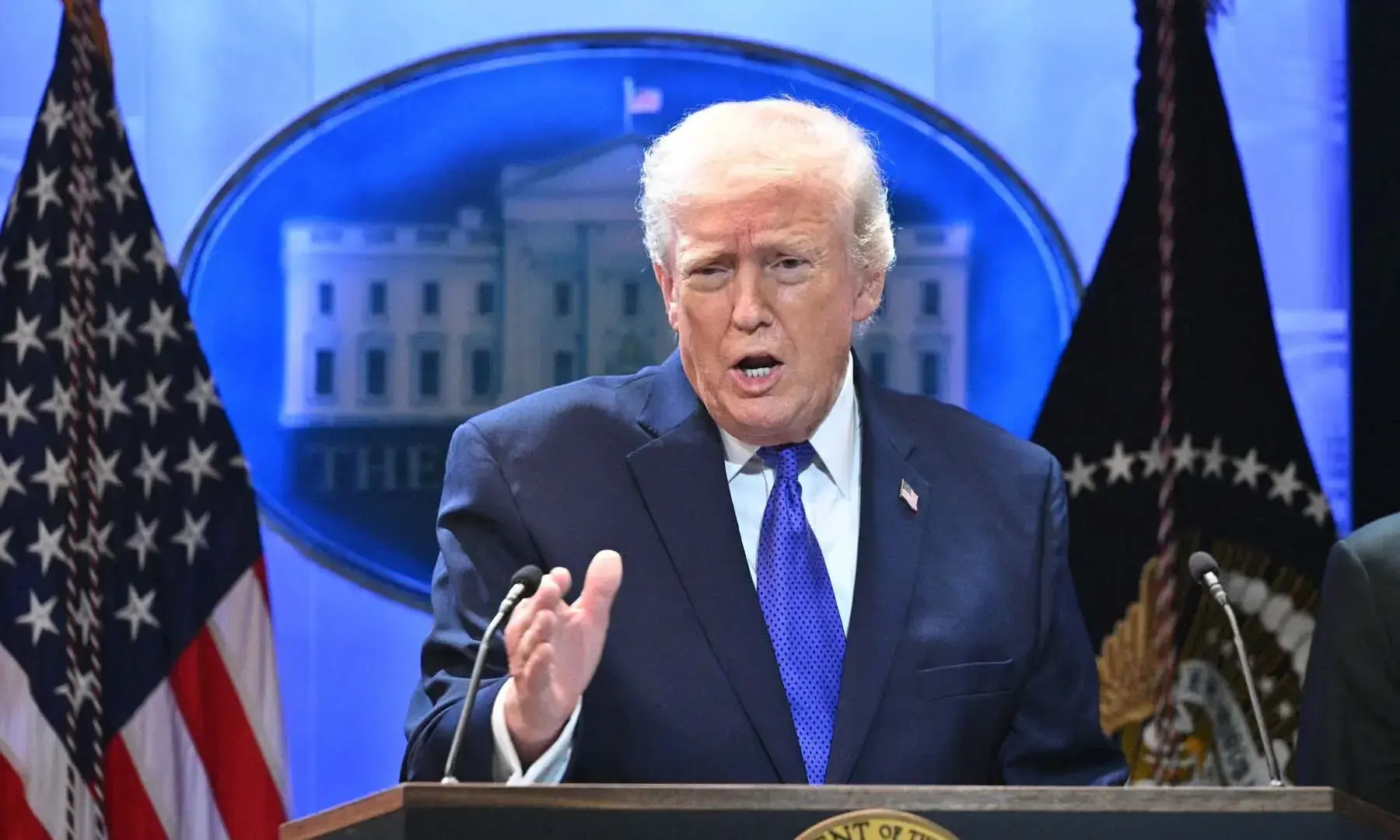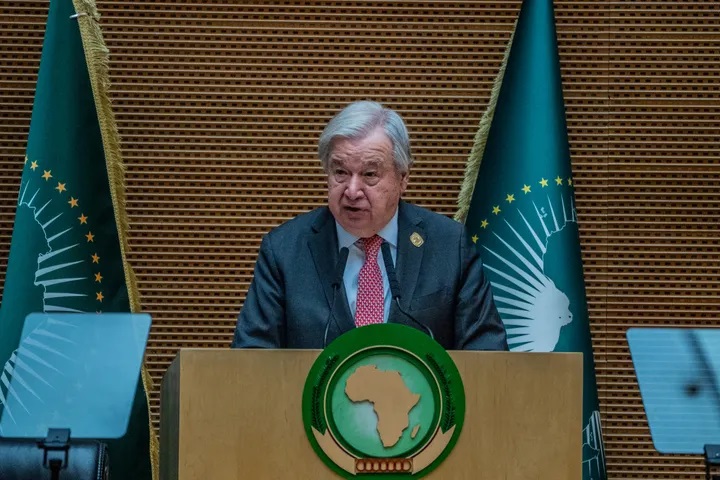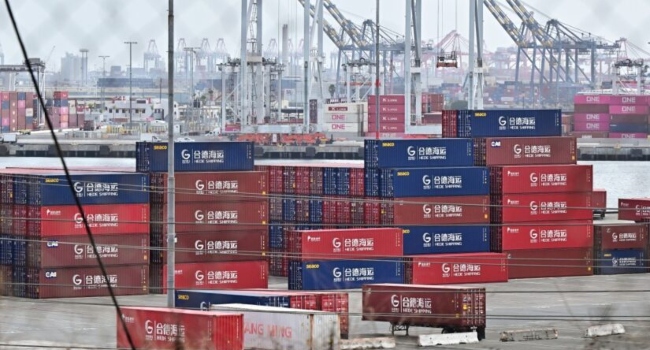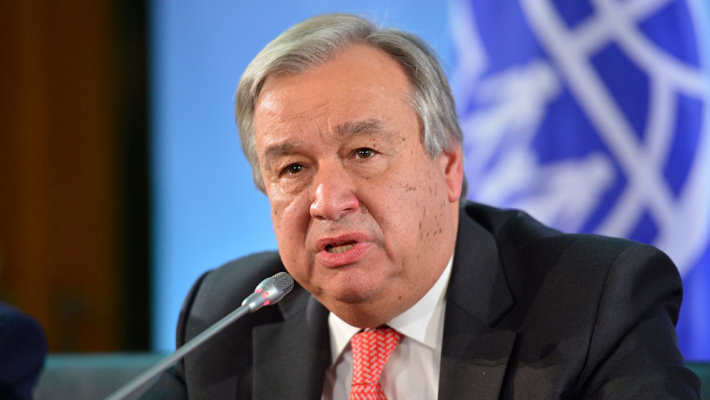Lebanon’s lawmakers elected on Thursday army chief Joseph Aoun as president after a two-year vacancy of the position, in a step towards lifting the war-battered country out of financial crisis.
Aoun, who turns 61 on Friday, arrived inside parliament to swear his oath to general applause, wearing a dark suit and bright blue tie instead of his usual military uniform.
“A new phase in the history of Lebanon begins today,” he told the chamber.
Supporters erupted in celebration in his home village of Aishiyeh in south Lebanon, where residents had gathered from the morning in front of the church which was adorned with Lebanese flags and his portrait, an AFP reporter said.
“The president is Joseph Aoun,” Parliament Speaker Nabih Berri said after 99 lawmakers out of 128 backed his candidacy.
Aoun faces the daunting tasks of overseeing a ceasefire on the Israeli border and naming a prime minister to lead reforms demanded by international creditors to save the country from the worst economic crisis of its history.
Aoun is Lebanon’s fifth army commander to become president and the fourth in a row.
Under multi-confessional Lebanon’s power-sharing system, the president must be a Maronite Christian, as do military chiefs.
The Mediterranean country has been without a president since the term of Michel Aoun — not related to his successor — ended in October 2022, with tensions between the Iran-backed Hezbollah movement and its opponents scuppering a dozen previous votes.
International pressure has mounted for a successful outcome with just 17 days remaining in a ceasefire to deploy Lebanese troops alongside UN peacekeepers in south Lebanon after a Hezbollah-Israel war last autumn.
The president’s powers have been reduced since the end of the 1975-1990 civil war.
But filling the position is key to overseeing consultations towards naming a new prime minister to lead a government capable of carrying out reforms demanded by international creditors.
Aoun was widely seen as the preferred pick of army backer in the United States, as well as regional heavyweight Saudi Arabia.
But lawmakers from the pro-Hezbollah bloc voted blank in the first round of the vote on Thursday morning, a source close to them said, leaving army chief Aoun short of the required two-thirds majority to win outright.
The source said representatives from the bloc met Aoun at the parliament during a break before lawmakers returned for a second vote.
‘Sovereignty and the Constitution’
US, Saudi and French envoys have visited Beirut to increase pressure in the run-up to the vote.
Pope Francis on Thursday expressed hope that Lebanon could “possess the necessary institutional stability… to address the grave economic and social situation”.
Several lawmakers in the second round still objected to what they see as foreign interference in the vote.
In protest, some rendered their ballot void by voting for “sovereignty and the constitution”, a reference to the fact that Aoun’s election would have technically required a constitutional amendment.
Under Lebanon’s constitution, any presidential candidate must have not held high office for at least two years.
In the first round, one lawmaker sarcastically cast a vote for the Saudi envoy to Lebanon, Yazid Al Farhan.
During the second round, one chose former US presidential candidate Bernie Sanders.
Critics have accused Hezbollah and allies of scuppering previous votes.
But a full-fledged war between Israel and Hezbollah last autumn dealt heavy blows to the Shiite militant group, including the death of its longtime leader Hassan Nasrallah in an air strike.
In neighbouring Syria, Hezbollah has lost a major ally after rebels toppled President Bashar al-Assad last month.
The Hezbollah-Israel war has cost Lebanon more than $5 billion in economic losses, with structural damage amounting to billions more, according to the World Bank.
AFP

